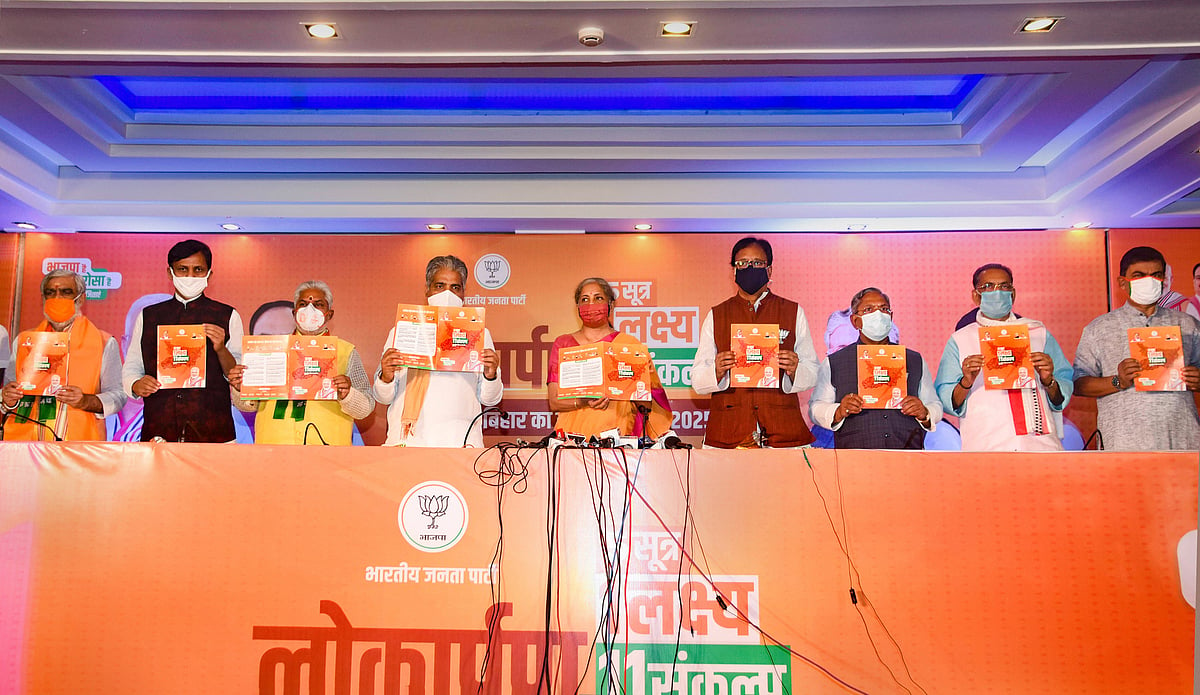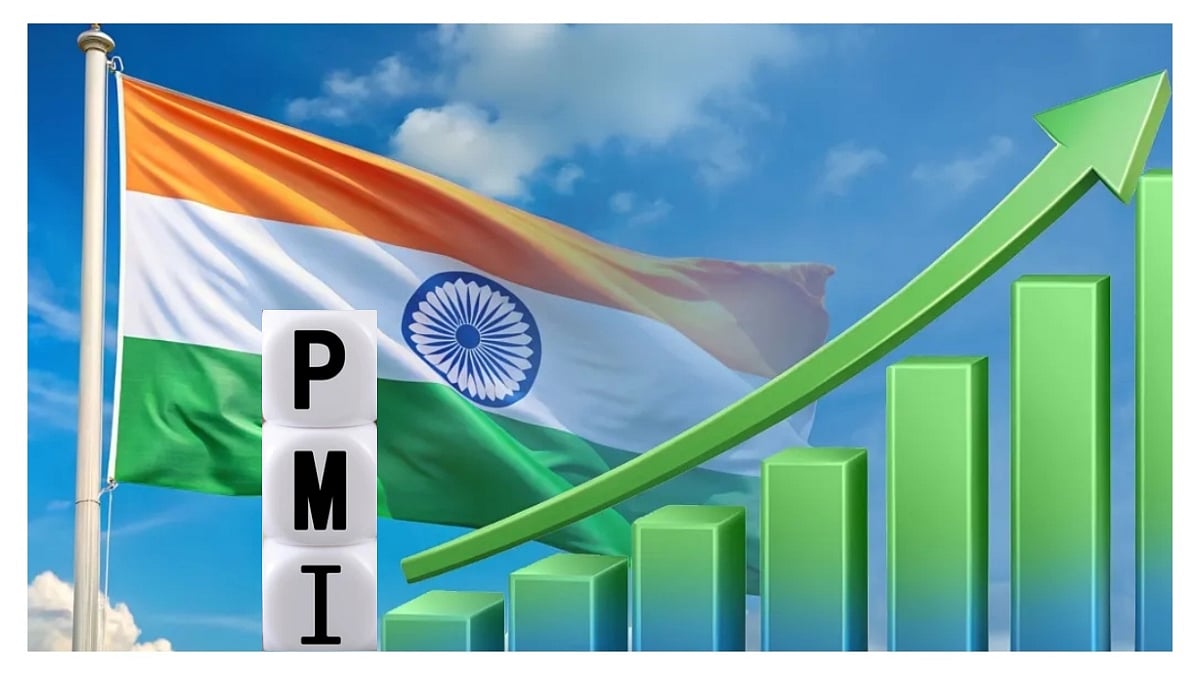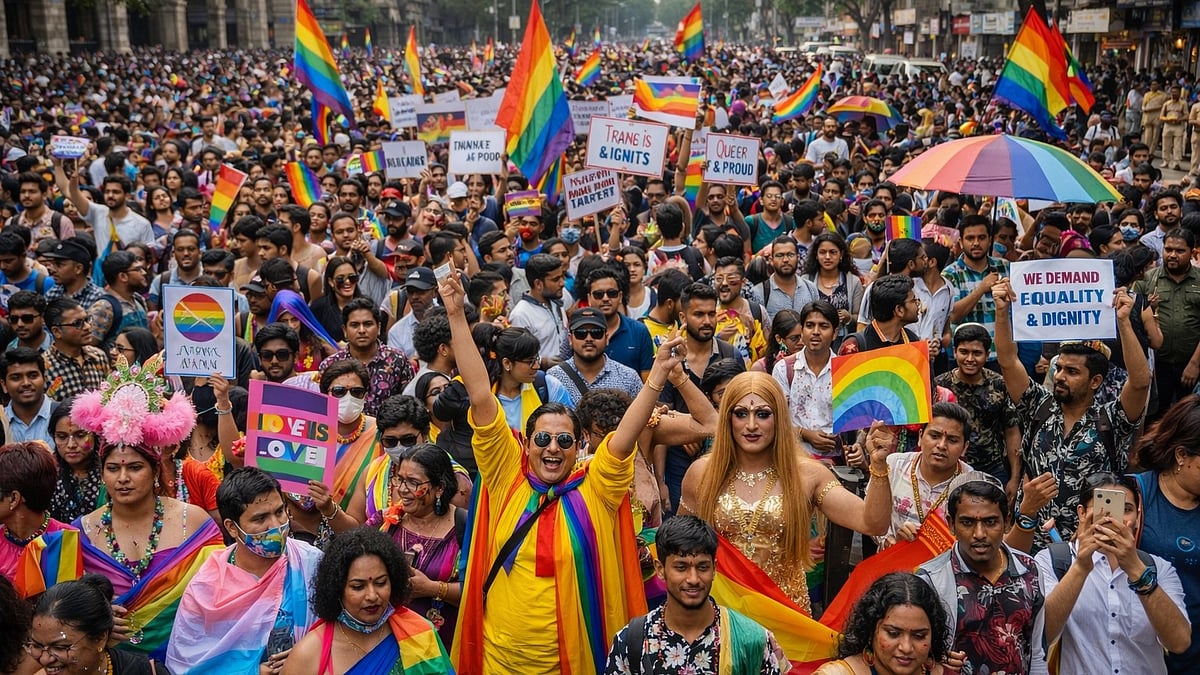The Bharatiya Janata Party’s promise to provide free Covid-19 vaccines to every resident of Bihar if it comes to power may pass the Election Commission’s model code of conduct test – a Union Cabinet minister has already famously equated it to the farm loan waiver promises, which have now become part and parcel of virtually every election in our country – but it fails the test of propriety and principles. This is not to say that the Covid-19 pandemic and the governance response to it, are taboo topics.
On the contrary, the massive public health challenge posed by the pandemic, as well as the economic devastation wrought by the consequent lockdown-induced collapse of the economy and the widespread misery that has gripped large parts of the population should – indeed, must – form an important part of any evaluation of performance of incumbents and challengers alike. However, the promise of free vaccines does not address any of these issues, but rather, hopes to capitalise on the fear and panic unleashed by the virus, which has demonstrated that no one – rich or poor, young or old, urban or rural, educated or illiterate – is immune.
The attempt to cynically tap into and exploit that primeval fear of death marks a new low, even for Indian politics. By now, the Indian voter has developed a pretty good understanding of how poll promises made by political parties and politicians work. While they may not exactly be written on water, they know that by and large, pre-election promises are to be taken largely as a statement of intent and direction and not actual milestones to which those making the promises can be held accountable.
So the BJP and Prime Minister Narendra Modi, who promised to create two crore jobs a year, and to bring back black money stashed overseas so that every Indian could get “Rs 15 lakh in their bank account” in the run-up to the 2014 Lok Sabha elections, had no problems convincing voters to resoundingly back them for a second term, despite manifestly failing to deliver on either of these pre-poll promises. What was important was the unstated understanding that while these targets might not actually be met, a sincere attempt would at least be made towards those ends.
But the BJP’s current promise is much more than a lofty poll promise. It seeks to tap into the fear of death, which has gripped the world at large in the pandemic. It is also, quite untenable at the moment. There is no vaccine candidate available. There is no clarity on by when a vaccine will be available. Nobody knows whether it will be available at a scale large enough to be sufficient to inoculate every resident of India’s third most populous state, leave alone the rest of the country. No one knows at what price such a vaccine can be made available – and whether that price can be afforded by the Bihar government. The Centre – which is also ruled by the BJP – has already been quick to point out that since health is a state subject, it can only make vaccines available to the states at a “reasonable cost” and it is up to the states to decide whether they want to charge their citizens or not.
This is cynical doublespeak. Now that the genie of free vaccines has been let out of the bottle, it simply cannot be put back. Already, three more states have announced that they too, will offer the vaccines free. This will inevitably spur a competitive race to the bottom. Given the massive revenue shortfalls that all states are facing, even if such an assurance were to be implemented, it is clear that it can be done so only at the cost of other, and perhaps equally pressing requirements.
Despite the vaunted “social engineering” under the decade-plus of the JD(United)—BJP alliance, Bihar is perilously close to being a failed state. It ranks dead last among states in per capita net state domestic product. Its average household income is less than half that of Kerala’s. Bihar again ranks dead last in the Human Development Index rankings. Its gross enrolment ratio in higher education is just 13.6, which means less than 14 out of every 100 youths in the target age group of 18-23 years is actually pursuing higher education. As a result, a state with one of the highest contributions to India’s “demographic dividend” stands to gain the least from it. It also contributes the most to migrant labour and consequently, has been hit hardest by the forced return of such workers.
Apart from some competitive one-upmanship in the area of jobs – the BJP topped the RJD’s Tejashwi Yadav’s promise of 10 lakh jobs with a 19 lakh jobs promise -- none of these pressing issues form a part of the debate. Regardless of who wins in Bihar, the cause of principled politics is already a loser.




